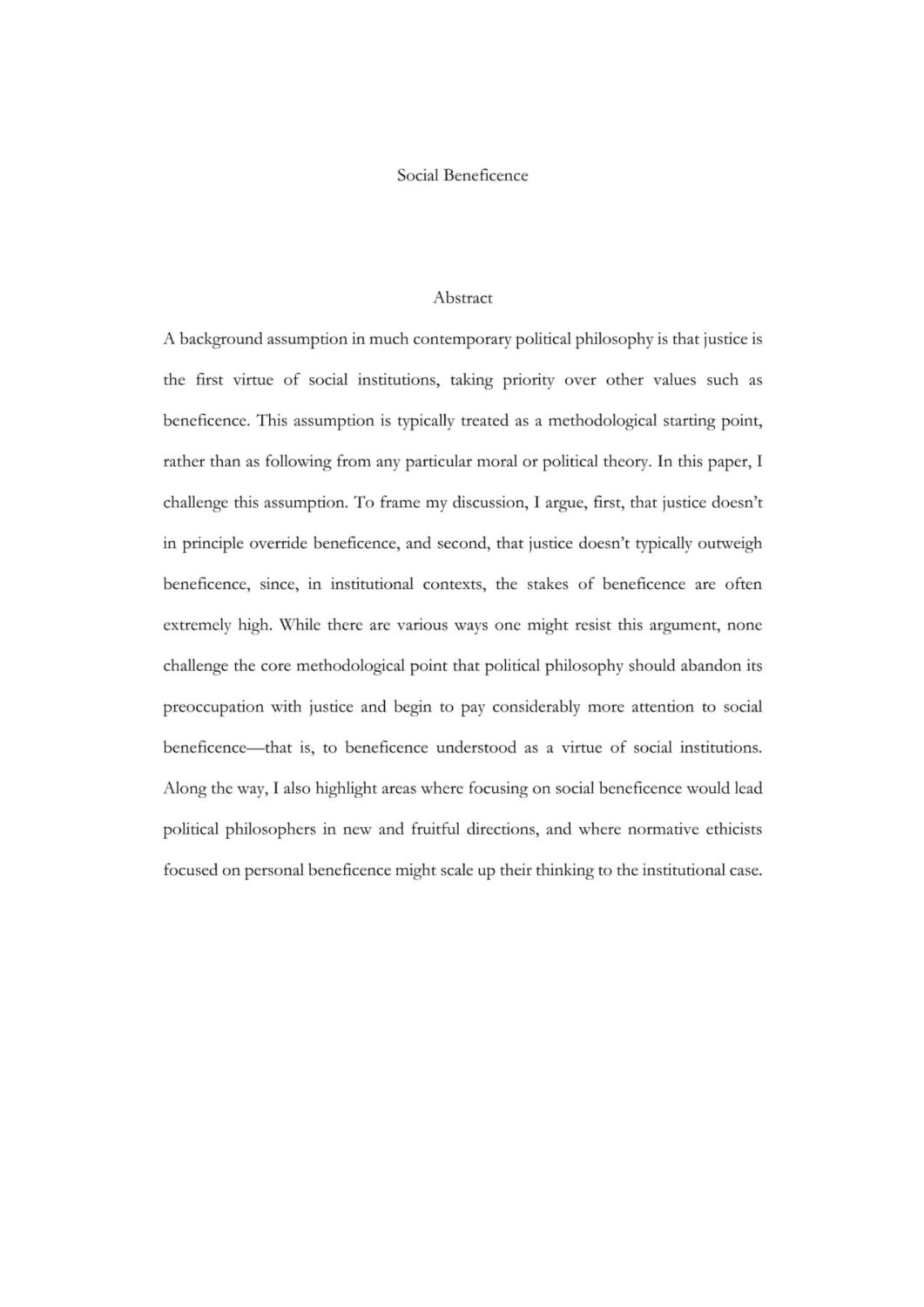Social Beneficence
Jacob Barrett (Global Priorities Institute, University of Oxford)
GPI Working Paper No. 11-2022
A background assumption in much contemporary political philosophy is that justice is the first virtue of social institutions, taking priority over other values such as beneficence. This assumption is typically treated as a methodological starting point, rather than as following from any particular moral or political theory. In this paper, I challenge this assumption. To frame my discussion, I argue, first, that justice doesn’t in principle override beneficence, and second, that justice doesn’t typically outweigh beneficence, since, in institutional contexts, the stakes of beneficence are often extremely high. While there are various ways one might resist this argument, none challenge the core methodological point that political philosophy should abandon its preoccupation with justice and begin to pay considerably more attention to social beneficence—that is, to beneficence understood as a virtue of social institutions. Along the way, I also highlight areas where focusing on social beneficence would lead political philosophers in new and fruitful directions, and where normative ethicists focused on personal beneficence might scale up their thinking to the institutional case.
Other working papers
Cassandra’s Curse: A second tragedy of the commons – Philippe Colo (ETH Zurich)
This paper studies why scientific forecasts regarding exceptional or rare events generally fail to trigger adequate public response. I consider a game of contribution to a public bad. Prior to the game, I assume contributors receive non-verifiable expert advice regarding uncertain damages. In addition, I assume that the expert cares only about social welfare. Under mild assumptions, I show that no information transmission can happen at equilibrium when the number of contributors…
The Conservation Multiplier – Bård Harstad (University of Oslo)
Every government that controls an exhaustible resource must decide whether to exploit it or to conserve and thereby let the subsequent government decide whether to exploit or conserve. This paper develops a positive theory of this situation and shows when a small change in parameter values has a multiplier effect on exploitation. The multiplier strengthens the influence of a lobby paying for exploitation, and of a donor compensating for conservation. …
The Hinge of History Hypothesis: Reply to MacAskill – Andreas Mogensen (Global Priorities Institute, University of Oxford)
Some believe that the current era is uniquely important with respect to how well the rest of human history goes. Following Parfit, call this the Hinge of History Hypothesis. Recently, MacAskill has argued that our era is actually very unlikely to be especially influential in the way asserted by the Hinge of History Hypothesis. I respond to MacAskill, pointing to important unresolved ambiguities in his proposed definition of what it means for a time to be influential and criticizing the two arguments…

